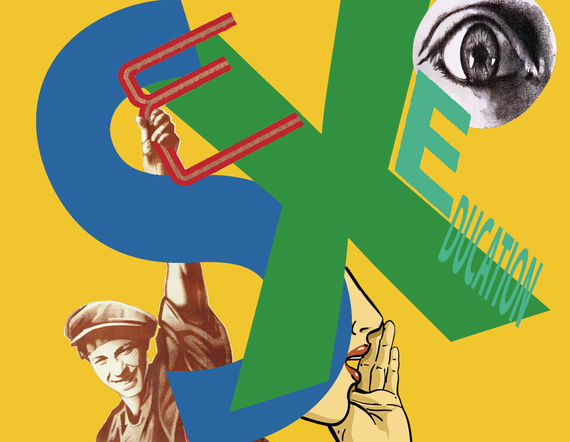
Also read - Disregarded Health (part I)
In this piece about mental health issues, Gayane Ghazaryan presents an overall picture of what struggles young people with mental disorders face in Armenia by piecing together her personal experience with OCD, the stories of three young people and expert opinion.
In Armenian society where many issues are stigmatized, sexual education remains taboo. Looking back at my school years, I realize we never had any formal courses regarding sexual health. At school, we had a few Healthy Lifestyle sessions as a part of our Physical Education course in the 8th grade. The teacher would hand out leaflets and tell us to read them at home. She would do this in such an awkward way that it felt like she was asking us to do something illegal. The handouts mostly contained information about pregnancy, sexually transmitted diseases (STD) and drugs, and usually ended up in the trash because we felt uncomfortable taking them home and being “caught” by our parents.
Later, when I was at 9th grade, AIDS Prevention, Education and Care (APEC) NGO started a two-week course. Although the program tackled some important issues like STDs, their prevention as well as other topics related to sex education, it was only for a select few. My school decided that only students in good academic standing would be allowed to take part in the course.
According to the Article 5.1 of the Armenian Law on Reproductive Health and Rights to Reproduction
1- Adolescents have the right to:
- Sex education and sexual and reproductive healthcare;
- be made aware of issues related to sexual maturation, sexual and reproductive health, have the necessary knowledge about abortion, and STDs, contemporary human immunodeficiency virus (HIV) prevention measures.
- receive wholistic and affordable medical advice in an attentive and discrete environment and also medical care when necessary relating to issues of puberty, sexual and reproductive health
2- Sex education of adolescents in public schools and other educational institutions shall be carried out by persons with professional training, in close cooperation with the family, health services, NGOs and the public.
3- An adolescent’s sex and reproductive health education programs are elaborated and implemented by the executive bodies of education and healthcare spheres, with the active involvement of interested public and other organizations, communities and their youth teams and taking into account national traditions, moral values and international experience, age specific psychological and physical developmental characteristics.
Although the law exists, not all public schools have a comprehensive sex education course as part of their curricula. Instead, selective sections of the sex education program are incorporated in school subjects as part of the Healthy Lifestyle course that was introduced by the Ministry of Education in 2008. Healthy Lifestyle is taught as a part of other courses, like Physical Education and Preliminary Military Preparedness, and the time devoted to it is 14 hours of the academic year.
“Unlike what most people think, sex education is not about learning how to have intercourse. It’s about being aware of one’s own sex, recognizing all the different physiological features of one’s body as well as knowing what psychohygiene is. It is also the first step toward preventing sexual disorders,” says Ruzanna Azatyan, a member of the Armenian Association of Sexology. She thinks that sex education begins from early childhood to old age, as each age has its own peculiarities.
Mari
Mari, 19, is an undergraduate student. In her secondary school years, sex education wasn’t taught as a separate subject. Her first exposure to sex education was in the 9th grade when during one of her Preliminary Military Preparedness hours, her class was told about puberty, menstruation and rape. “Our formal sex education was limited to that single class,” says Mari, who just like her classmates didn’t take the topic seriously as there was nothing new to learn. “We already knew those things either from our parents or the media.”
At that time Mari admits, she did have burning questions regarding her body, yet she never turned to her teachers or parents. Her primary sources of information were books and the Internet. “When you’re not aware of these things, you feel like a little child. But when you learn about the existence of these things you start feeling more mature,” she says.
Ruzanna Azatyan says that teaching sex education from an early age can have positive effects on people’s physical as well as psychological health. She notes that a sufficient level of awareness can prevent stress among young people. “If a 13-year-old girl has been informed about what menstruation is, she will not be very stressed or scared when she has her first period. She will be emotionally prepared for it,” says Azatyan.
Elmira
21-year-old Elmira’s formal sex education didn’t go beyond two or three classes taught during Healthy Lifestyle. The course had several problematic aspects as not only did it lack a comprehensive syllabus, but was taught by a PE teacher feeling rather uncomfortable talking about the topic.
Although Elmira didn’t get sufficient knowledge at school, she thinks she’s lucky as she never had problems discussing sex-related topics with her family and later on with her friends. “I feel like I’ve won the lottery,” she explains. “I know how challenging it can be for other people to talk about these things.” Unlike many of her peers, she didn’t have to refer to the Internet as her primary source of information. “The Internet always has the answers to all questions, yet we all know it’s not always reliable,” says Elmira.
Azatyan, who periodically conducts trainings for educators and school teachers, notes that most of them shy away from using sex-related vocabulary. “How can educators who feel embarrassed to say simple words like ‘vagina’ teach about sexual health?” says Ruzanna who thinks the feeling of embarrassment is a result of living in a traditional society where there are many insecurities. Azatyan believes that teachers who lack confidence and methodology aren’t able to educate the youth about sexual health. Consequently, these teachers end up either telling their students to read everything on their own or ask their parents.
Janna
21-year-old Janna remembers how in her early teenage years she wanted to know what “losing virginity” exactly meant. She felt embarrassed to ask her teachers or mother, especially after her mother’s discouraging attitude toward talking about menstruation. Janna’s grandmother was the first person to tell Janna about what menstruation was. “I was 12 then, and when my mom learned about the incident, she got extremely mad at my grandma,” she recalls. Not getting any support from her mother, every time Janna had questions regarding sexuality or sexual health, she turned to the Internet, finding mostly Russian sites, as she couldn’t find any information in the Armenian language. “As a teenager, I didn’t differentiate good sites from bad ones. I’d read stuff from Cosmopolitan and got even more confused” she says. Janna admits that even today she is not confident about her knowledge of sexual health. “There are so many things I still don’t know. I still don’t have a clear idea on how to use contraceptives or how those birth control pills work.”
The lack of information and the stigma around talking about sexual health in families often leads to misinformation be it the result of untrustworthy sites or seeking advice from their “more mature and experienced” friends. “The majority of my patients are young people. The problems they have could have been prevented if they were better informed about sexual health at an earlier age,” says Azatyan.
A number of NGOs including Women’s Resource Center (WRCA) and YMCA Syrian-Armenians organize sex education workshops, during which they discuss male and female anatomy. They talk about intercourse, STDs and safe sex.
Some private schools have implemented mandatory sex education courses. Anania Shirakatsi Lyceum has been offering a separate course, Ethics for Armenian Women/Armenian Knight, for 20 years now. The course is taught in the 11th or 12th grades and it aims to encourage the formation of students’ sexual self-consciousness. Unlike public schools, the course is taught by sexologists.
Experts say that even though the interest in sex among the youth is growing, private schools and NGOs alone are not capable of providing sufficient knowledge to them. The issue needs to be addressed nationally.



